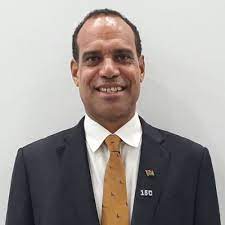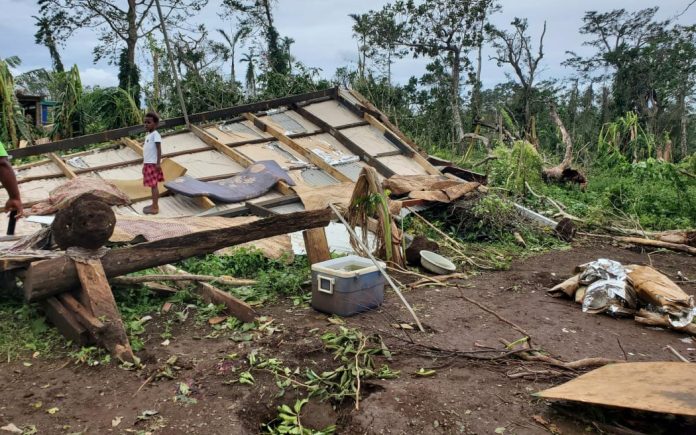The concerns of young people in the Pacific about climate change are set to be heard at the world’s top court.
Four years after students in Fiji first proposed the idea, the International Court of Justice is about to be asked to decide on a country’s obligations to fight rising temperatures.
But first, the UN has to approve the request for this legal opinion, brought by Vanuatu on behalf of the scholars.
The effort is likely to succeed as it’s being backed by about 120 countries.
The legal opinion of the ICJ, although non binding, could then be cited in climate court cases around the world.
The threat posed by a changing climate is a real and present danger for a small island nation like Vanuatu.
Earlier this year it was hit by two category four cyclones in one week, at an estimated cost in damages of roughly half the country’s annual GDP.
These experiences give added weight to Vanuatu’s UN resolution, seeking legal clarity on responsibilities for climate change.
The country’s minister for climate change says Vanuatu is not seeking to put in place new restrictions but to clarify existing obligations to prevent harm to the environment, such as in the UN Convention on the Law of the Sea and the Universal Declaration of Human Rights.
The resolution has also been carefully crafted to avoid blaming the countries that have contributed most to the warming gases that are driving up temperatures.
“Let me be very clear that the advisory proceedings of the ICJ we are asking for in this resolution are not contentious, and our question is not directed at any state, not intended to blame, shame or otherwise seek judgment,” Ralph Regenvanu told an online briefing.

With the support of so many countries, including the UK and Australia, the resolution looks certain to pass. However, the U.S and China have not yet expressed an opinion on the issue. Vanuatu hopes the measure will proceed by consensus.
If this happens, the ICJ, based in the Netherlands, will then have two years to consider its view.
Lawyers supporting the case believe this process is necessary as right now, under the Paris climate agreement, there is confusion about responsibilities regarding the causes of climate change.
“If you ask, in good faith, 10 international environmental lawyers whether what’s happening with emissions in many states is unlawful under the Paris agreement, you will have an honest divide,” said Jorge Viñuales, professor of law and environmental policy at Cambridge University, who’s drafted the legal question to go in front of the court.
“Under international law, that can’t make sense. So instead of looking at the Paris Agreement, you zoom out, and you look at the entirety of international law.
“It cannot be possible that destroying the planet is legal.”
Although a decision from the ICJ would not be binding, supporters believe it would likely have a galvanising effect around the world on climate action.
Governments may learn that not curbing warming gases breaks international law. Courts in countries around the world may take their lead from the decision, and it may shape UN negotiations on climate change, and impact decisions by fossil fuel companies on their long-term investments.
“I think it’s going to shape the discourse; it could be a game changer for new policies and for tightening existing policies,” said Prof Viñuales.
“It may empower and embolden civil society to do more, and it may create a new political narrative that can be used in elections, for example.”
For some of the law students at the Fiji campus of the University of the South Pacific, the idea of getting the world’s top court to rule on climate change initially seemed too ambitious.
“Let’s get real here,” said Cynthia Houniuhi, a law student and president of a group calling itself Pacific Island Students Fighting Climate Change.

“How can a small group of students from the Pacific convince the majority of the UN members to support this initiative?”
But the group of 27 were ultimately persuaded by the very obvious signs of climate change all around them.
The students drafted a letter to Pacific island leaders which brought a positive response from Vanuatu.
They also contacted Prof Jorge Viñuales. His advice was to go for the top, and aim for the International Court of Justice.
“This is climate change. You don’t go through the backdoor,” he told BBC News.
Previous efforts to go down this route failed through lack of support, but the growing impacts of rising temperatures have changed minds and votes at the UN.
SOURCE: BBC NEWS/PACNEWS













